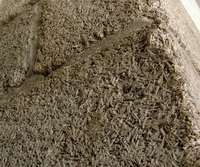Teens that use cannabis may function better than teen tobacco-users, and appear to be more socially driven and have fewer psychosocial problems than those who do not use either substance, according to a Swiss survey.
Researchers at the University of Lausanne in Switzerland surveyed 5,263 students, including 455 who smoke marijuana only, 1,703 who smoke marijuana and tobacco and 3,105 who smoked neither one.
The survey, which will be published in the November issue of Archives of Pediatrics & Adolescent Medicine, found that marijuana-only smokers had better relationships with friends, better grades and were more likely to play sports than teens who smoked tobacco and those who abstained from both substances.
A U.S. substance abuse expert disagreed with the study and said U.S. teens should not be encouraged to use marijuana, particularly since teenagers’ brains are still developing at this time.
“Switzerland is very liberal compared to us in many ways,” Dr. Edwin Salsitz, senior physician of chemical dependency at Beth Israel Medical Center. “In general, it’s not a good idea for teenagers to use psychoactive drugs. The brain is still developing until the age of 21.
“Maybe (there’s) a cultural bias there that says it’s ok to use marijuana once or twice a month,” he continued “But from what I know, I’ve never heard that anyone thought it was beneficial. Most experts here would say that it’s not a good idea to use cannabis before the age of 15, because it interferes with school and the development of brain.”
Researchers found that marijuana-only users had the following characteristics:
— More likely to be male (71.6 percent marijuana smokers versus 59.7 percent of teens who used tobacco and marijuana)
— Play sports (85.5 percent vs. 66.7 percent of tobacco and marijuana)
— Live with both parents (78.2 percent vs. 68.3 percent of tobacco and marijuana)
— Have good grades (77.5 percent vs. 66.6 percent of tobacco and marijuana)
Cannabis-only smokers were also less likely to have been drunk in the past 30 days, less likely to use cannabis before the age of 15 and less likely to use marijuana more than once or twice in the past 30 days. They were also less likely to use other illegal drugs, compared to students who used both substances, researchers found.
“The gateway theory hypothesizes that the use of legal drugs (tobacco and alcohol) is the previous step to cannabis consumption,” the authors wrote. “However, recent research also indicates that cannabis use may precede or be simultaneous to tobacco use and that, in fact, its use may reinforce cigarette smoking or lead to nicotine addiction independently of smoking status. In any case, and even though they do not seem to have great personal, family, or academic problems, the situation of those adolescents who use cannabis but who declare not using tobacco should not be trivialized.”
In comparison to students who abstained from both substances, marijuana-only smokers were:
— More likely to be male (71.6 percent cannabis users vs. 47.7 percent of teens who abstained)
— Have a good relationship with friends (87 percent vs. 83.2 percent)
— Be sensation-seeking (37.8 percent vs. 21.8 percent)
— Play sports (85.5 percent vs. 76.6 percent)
— Less likely to have a good relationship with their parents (74.1 percent vs. 82.4 percent)
The fact that some students who smoked marijuana were less likely to have a good relationship with their parents wasn’t surprising to Salsitz. “The way to look at it is to look at alcohol as an analogy,” he said. “Do adults or teens who use alcohol have better relationships than those abstinent? That’s just not true. It looks like if you smoke marijuana and not tobacco, it’s better for you.”
He said the study should be viewed in terms of culture. “In France, people drink wine with food, but they don’t get drunk,” he said. “Kids also start doing this when they are young, and that’s different from here. I don’t think anyone would say that the active ingredient in marijuana is doing anything good in the brain, compared to abstaining or smoking tobacco, so there must be cultural reason for this happening.” - FOX NEWS





